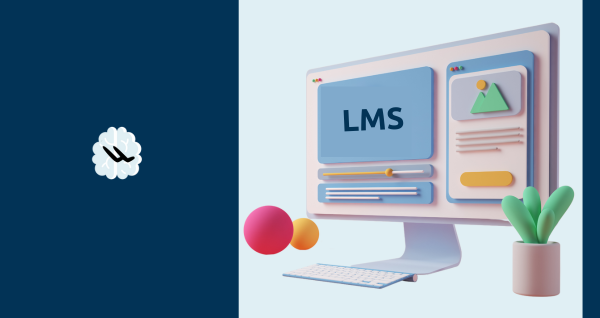
Artikel
21
september
How to choose the best LMS for your SME: 10 most importants criteria to consider
Choosing the best Learning Management System (LMS) for a Small and Medium-sized Enterprise (SME) is essential to support training and development efforts efficiently (find here why SMEs should invest in an LMS). Here are ten important criteria to consider when selecting an LMS for your SME:
1. Budget-Friendliness
SMEs often have limited budgets, so it’s crucial to choose an LMS that aligns with your financial resources. Look for options that offer competitive pricing, including transparent pricing structures without hidden costs. LiveLearn perfectly aligns with this criteria as LMS for SMEs.
2. Scalability
While you may be an SME now, consider future growth. Choose an LMS that can scale with your organization, accommodating more users, courses, and features as your company expands.
3. User-Friendly Interface
Opt for an LMS with an intuitive and user-friendly interface. This is especially important for SMEs, as employees may not have extensive training in using complex software.
4. Content Compatibility
Ensure the LMS supports various content formats, including videos, documents, quizzes, and presentations. It should also be easy to upload and manage content, especially if you have limited technical expertise. Find here the details of our functionalities.
5. Mobile Accessibility
Many SMEs have a dispersed workforce or remote employees. Select an LMS that is mobile-responsive or offers a dedicated mobile app to allow easy access to training materials on smartphones and tablets.
6. Content Creation Tools
Evaluate whether the LMS provides content creation tools or allows easy integration with e-learning authoring tools. This can be cost-effective for SMEs that need to create custom content.
7. Reporting and Analytics
The LMS should offer basic reporting and analytics features to track learner progress and course effectiveness. These insights are crucial for improving training programs.
8. Integration Capabilities
Consider how well the LMS can integrate with other software your SME uses, such as HR systems, email clients, or CRM software. Integration can streamline processes and data management.
9. Support and Training
SMEs often lack dedicated IT staff, so choose an LMS provider that offers excellent customer support and training resources. Ensure that help is readily available in case of technical issues.
10. Security and Compliance
Data security is essential. Ensure the LMS complies with industry standards and regulations, especially if your SME operates in a regulated industry. It should also have robust user authentication and data encryption.
By carefully considering these criteria and conducting thorough research, your SME can make an informed decision when selecting an LMS that best suits your training and development requirements. Remember to involve key stakeholders in the decision-making process to ensure alignment with your SME’s goals and objectives.
What's your reaction ?
Follow us on Social Media
Some Categories
Recent posts

April 26, 2024
Aandachtspunten bij een geldlening tussen een ouder en een kind

April 26, 2024
Hoe gaat u de zorg organiseren en wat zijn de kosten?

April 26, 2024
Wonen met zorg: de belangrijkste aandachtspunten op een rij

April 26, 2024
Hoe werkt u als dga aan een zorgeloze financiële toekomst?

April 26, 2024
Belastingvrij schenken in 2024

 Inloggen
Inloggen
 Registreren
Registreren






Comments (0)
No reviews found
Add Comment